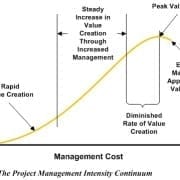Unlocking Hidden Costs: How Precise Time Tracking Improves Project Profitability
Staying profitable in project management is an ongoing challenge. Hidden costs often silently eat away profits, making it difficult to keep projects on budget and schedule. Identifying these hidden costs is key to a project’s financial success.
Tracking time precisely isn’t just a tool; it’s a game-changer for tackling hidden costs head-on. By accurately recording the time spent on tasks, managers gain valuable insights into where resources may be used inefficiently.
It unlocks the ability to identify and reduce hidden costs, leading to more accurate budgeting and improved profitability. This article will explore how precise time tracking can transform your project management approach and bottom line.
Understanding Hidden Costs
Hidden costs in project management are like financial ninjas – sneaky expenses that aren’t obvious at first glance but can wreak havoc on your budget. These costs often stem from untracked hours, inefficient workflows, and surprise overtime.
Think of it this way: if your team spends extra time on a task but forgets to log it, those extra hours become a hidden expense. Similarly, inefficiencies like unnecessary meetings or vague project goals waste valuable resources. Over time, these unnoticed costs add up, threatening your project’s profitability.
The key to effective project management and increased profitability is first recognizing and understanding these hidden costs. Once you know where they come from, you can proactively manage them and keep your project on track.
Implementing Effective Time Tracking Tools
Choosing the right time-tracking tools is essential for capturing precise data on project activities. Start by selecting user-friendly software or apps that offer features like automatic time logging, detailed reporting, and seamless integration with payroll and project management systems. A reliable time clock software offers secure clock-ins through mobile access and GPS tracking, ensuring businesses can monitor employee hours accurately.
Once you’ve chosen a tool, establish best practices for implementation. Ensure all team members understand the importance of accurate time tracking and provide necessary training. Create a standardized process for logging time, including regular reminders and check-ins to maintain consistency.
Additionally, compliance with the Defense Contract Audit Agency (DCAA) is vital for businesses working with government contracts. Use an AI-integrated time tracking tool that ensures DCAA compliance to meet strict government requirements, avoid potential legal issues, and maintain the integrity of your timekeeping records. Implementing such tools safeguards your business and enhances credibility and trust with government clients.
They offer seamless integration, real-time reporting, and easy compliance with DCAA standards. They also provide automated reminders, audit trails, and user-friendly interfaces to ensure accuracy and efficiency in timekeeping.
Benefits of Precise Time Tracking
Tracking time isn’t just about punching a clock. It’s a strategic move that can significantly boost your project’s profits. Let’s look at how tracking time precisely can revolutionize your project management.
- Improved Accuracy in Billing and Invoicing: Tracking time ensures clients are fairly billed for the work they get. It fosters trust and transparency in your business relationships. It also protects your project’s financial health by preventing revenue loss due to underreported hours.
- Better Resource Allocation and Management: Tracking time in detail offers valuable insights. It shows how your team uses resources. This understanding lets you assign tasks efficiently. It ensures no one is overloaded while others are underused. By optimizing resource allocation, you enhance productivity and prevent burnout.
- Enhanced Productivity through Identification of Bottlenecks: Time tracking is a diagnostic tool. It lets you pinpoint where projects could be faster or more efficient. By finding these bottlenecks, you can quickly fix them. You can also make workflows smoother and improve project timelines. This proactive approach reduces delays. It cuts the costs that come with them and helps to improve project outcomes.
- Accurate Project Estimation and Planning: It captures historical data from past projects. This data is gathered through precise time tracking. It is a valuable resource for future planning. By analyzing this data, you can make better estimates. They will be accurate for the time and cost of upcoming projects. This reduces the risk of underestimating project needs. It lets you set realistic deadlines and budgets.
Challenges and Solutions
Implementing time-tracking systems comes with its own set of challenges. Common issues include resistance from team members who may see it as intrusive or unnecessary and errors in time logging that can skew data accuracy.
To overcome resistance, clearly communicate the benefits of tracking time, such as improved project outcomes and fairer workload distribution. Providing training and ongoing support can help ease the transition and ensure everyone understands the process.
Addressing errors in time logging involves choosing user-friendly tools and establishing clear guidelines for recording time. Regular audits and feedback sessions can help identify and correct mistakes, ensuring data remains accurate. By addressing these challenges proactively, you can make time tracking an effective and accepted part of your project management strategy.
Conclusion
Effectively managing hidden costs is essential for project profitability. Tracking your time precisely provides the insights needed to uncover and control these expenses. It enhances billing accuracy, resource management, and productivity. By implementing robust time-tracking systems, you can improve project estimation and planning. Adopt these practices to transform your project management practices and achieve better financial outcomes.














Leave a Reply
Want to join the discussion?Feel free to contribute!